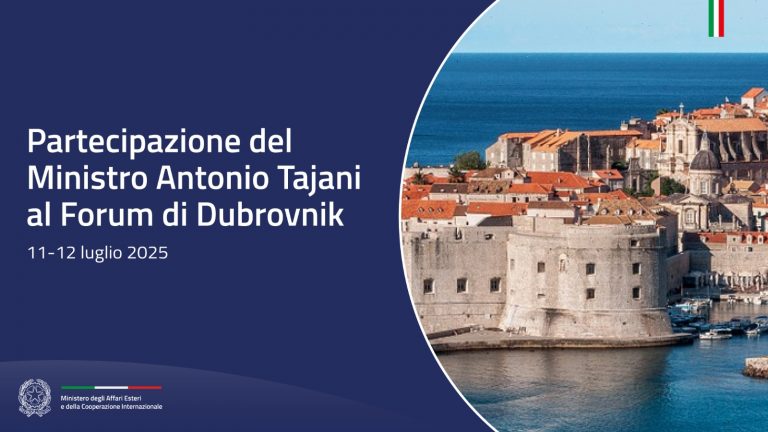Sometimes, the things you read really do seem to miss the mark. The article by Prof. Perotti published in Il Sole 24 Ore on 7 May 2014 “Gli ambasciatori e la spending review” (Ambassadors and the Spending Review) provides several instances of data that are inaccurate or have clearly been manipulated. I wish to provide some clarification, not least to avoid damage – deliberate or otherwise – to an entire Ministry and category of state officials who today, even more than in the past, are essential to the promotion of Italy’s political, security and economic interests worldwide.
The article makes highly misleading references to the alleged earnings of diplomats abroad and in Rome and draws entirely erroneous conclusions. Erroneous because they are not based on like-for-like data. The statement that diplomats, on average, earn 10,000 euros per month is unfounded. That figures only applies to very senior positions in the Farnesina (14 people out of 910). The average net salary of diplomats serving in Rome is about 4,750 euros, which falls to 3,330 euros when they are posted abroad.
In addition to their greatly reduced salary, diplomats serving abroad receive a flat-rate allowance that also has to cover personal and institutional expenses that in other countries are paid in full by the employing ministry. These expenses include accommodation (with the exception of heads of mission, who use the official residence), schooling for their children, holiday leave travel, domestic utilities, fuel for work-related travel, and in many cases medical expenses etc. In our system, this only applies to a minor extent. It is simply not true that “domestic staff, telephone costs, fines, and minor maintenance costs” are paid directly by the Administration.
Entertainment allowances, which cover expenses incurred to promote Italy abroad, are subject to regular reporting requirements and careful checks and inspections. Once again, in the Italian system entertainment expenses are an element of diplomats’ personal allowances, while in other countries they are paid directly from the state coffers.
We are the first to recognise that the Italian system for remunerating our personnel abroad, a system we have inherited from the past and which has, nonetheless, brought significant savings in management costs, is, in objective terms, complex. In the interests of the Foreign Ministry itself, it would benefit from an immediate review. The Administration is working on a number of proposals inspired by the models used by other western diplomatic services and which distinguish between salary received and expenses for service abroad. We firmly hope that this will put an end to any confusion between earnings and personnel costs.
This reform is taking place in a framework of resource scarcity that is preventing our Administration from adopting in full the much more advantageous system used in the diplomatic services of other European Union countries and our principal partners, because the administrative and additional costs are too high.
The Germans pay certain expenses directly for their staff based abroad: language classes; a familiarisation trip for the entire family before transfer; suitable clothing for the climate of their destination country; a separation and double accommodation allowance, in cases where family members have to live in different countries; a furnishing allowance, and so on. This information on the German system was apparently supplied directly to the author of the article, who chose not to cite or comment on it. To put it clearly: we would be more than interested in adopting the German or European system as of now but we are not allowed to do so because it would require more resources. It is a solution, however, that would spare us unfounded accusations.
Leaving aside the method of calculating the percentages, which is open to discussion, the official figures (for 2013) for the budgets of Europe’s diplomatic services are set out below. They do not include public development aid or, for the United Kingdom, the costs of agencies outwith the Foreign Office that in Italy fall within the Farnesina’s remit. Italy’s budget was 1,610 million euros, that of France 2,826 million euros, Germany’s 3,486 million euros and the United Kingdom’s 2,227 million euros. Readers interested in the “weight” of foreign policy can draw their own conclusions.
Following recent provisions approved by Parliament, the Farnesina has reduced its staffing levels: by 101 for diplomats (from 1120 to 1019) and by 1,266 for non-diplomatic staff in our various divisions (from 4,506 to 3,240). The Foreign Ministry has issued decrees to close 35 embassies, consular offices and cultural institutes. We now have 901 Italian diplomats in service. A comparison with other European countries shows that the Italian figure is about half, one third and a quarter of the numbers in the German (1,865), French (2,700) and British (3,350) diplomatic services respectively – all of which have a foreign network of about the same size as our own.
The proposals submitted by the Foreign Ministry to Commissioner Cottarelli envisage nothing but cuts for 2014 and for subsequent years even higher income from services provided abroad. The cuts are being deducted directly from our expenditure headings. Contrary to reports, they are real cuts. The silence surrounding the reduction of 60 million euros (i.e., one sixth of the original allocation) in the budget for pay abroad since 2009 is disappointing indeed. A mention of that reduction would have provided some context for the statement attributed to a Foreign Ministry official regarding the need to avoid further, new cuts.
The reform of Italy’s public administration is a vital and shared goal which the Farnesina is helping achieve through rigour and determination. And has been doing so achieve for quite some time. Reform means making the “machine” more efficient, not destroying it or depriving it of its legitimacy.
We believe that in this period we must also pay close attention to this aspect of the question. The state cannot do without its various branches and its operational arm without creating serious risks, in the case of diplomacy, for the growth and security of our country





